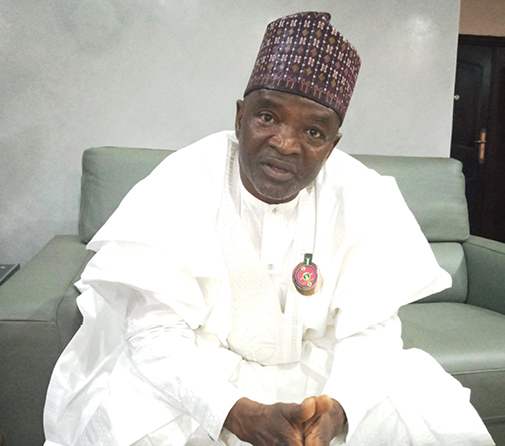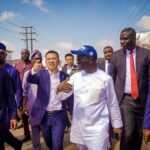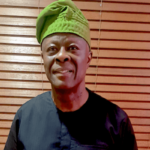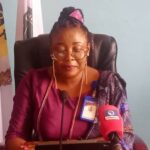Minister of Environment, Dr. Mohammad Mahmood Abubakar in this interview with Daily Trust, says the federal government will issue the third Green Bond in March and commence the planting of 25 million trees as part of efforts to tackle climate change issues, among other initiatives.
Campaigns on climate change have been resisted in some quarters. What is your view on this?
Today, what dominates our thinking and concern is the climate change issue which is really affecting everything and everyone. Human, animal and plant species are being impacted by climate change. We must all know that this is because of the way we mishandled our planet. Maybe from the beginning, it was ignorance that action or lack of it can cause damage to our environment which will translate to damage to ourselves.
But I think, even after we realised that, we continued unfortunately to do same things and that injured the planet. The unfortunate part is that today, there are some leaders who don’t even believe in climate change issues. But the truth is that it is real and if you ask island nations,those in the middle of the Pacific, Indian or Atlantic oceans, they will tell you that they are losing land mass because the oceans are rising. This is because of the melting of the polar ice cap in Antarctica and other places and they are melting because the temperature of our planet has increased.
Since the pre-industrial time to today, temperature has so increased that it is causing the melting. Increase in temperature can cause other things on animals, plants and humans because certain species can only operate within a certain temperature. By the time the temperature is too high, they just can’t survive.
What is your assessment of the just concluded COP25 in Spain?
I can say it was very successful and Nigeria had a very good showing. We participated in the negotiation and went with a credible team of negotiators, technical support team and we participated in several other functions. I represented Mr President and delivered the national statement in which we sent the point home including the issue of developed countries coming through with their pledges, the ratification of any treaty or agreement that has been signed. It was a good show as civil societies made their case. The leaders have gotten their messages. I will say that people are really ready for action and the time for talking is over.
There are accusations that governments are not serious on the issue of climate change and countries that are the highest polluters are withdrawing aid from the victims. What are the African ministers of environment doing to strengthen action on climate change?
It is a very thorny issue because some of the developed countries are withdrawing but a good majority of them are there sticking with the climate change action programme. I remember that at the recent UN General Assembly, Angel Merkel of Germany admitted that countries responsible for the climate crisis are the developed countries but the developing countries are the ones bearing the brunt of the crisis. She also pledged that they will double their efforts in terms of financing.
At the last COP25 conference, African countries observed that some of the pledges are not being redeemed -they are not being redeemed on time or completely. So we are putting our heads together to make sure that when these developed countries promise, they deliver. That our participation in certain things also will have to be considered as to what we should do or not; to stand our ground until what is supposed to be done is done. So Africans are really taking action.
If these countries completely pull out of the climate change agreement, does Africa have the resources to fight climate change?
We will have to, just as we are being innovative now with finances. We will not just fold our hands; we will have to be innovative as we should to continue the fight against climate change. But I can assure you that very few countries will probably pull out. I know the United States has started pulling out but I don’t see major countries following suit.
What’s the place of green bond and green financing?
Our focus on fossil fuel, petroleum and coal and our focus on making money by any means necessary has been part of this problem. Now that we have seen the problem, we have to go green and that is why we have this green financing to execute projects that are also green.
This was also a big topic at the just concluded COP25 that I attended and there are lots of funding agencies and banks that are willing to go green and provide funds for such projects. One of those projects is the provision of solar energy and that is part of our project which we call the Energising Education Project (EEP) where federal universities are being powered by solar.
We are concerned about emissions because they are the one heating up the ozone layer. So if we reduce emission, we will reduce the chemicals that are letting in harsh ultra violet coming into the atmosphere thereby heating it up.
For the first issuance of the green bond, the proceeds were used in two areas: power and afforestation. Even in the second one which was more successful than the first with over N15 billion realised,we continued along that path.So we have imitated the third green bond which will go into agriculture, water, and transportation.
Also, the ministries of Science and Technology along with Environment are working on the methanol policy which is also going green. Methanol is hydrogen and water and when you burn it, you get cleaner emission or almost nothing. These are ways that we are going green through the green bond.
It does not just stop there, international funding agencies like the Green Climate Fund, the Global Environment Facility are trying to support any project that is green.
Another example is that at the ministry, we have built plastic recycling plants which are a means of going green. It is to collect used plastic, recycle and produce. Like the one we commissioned in Karu, Abuja, we pick used plastics, process them and produce pellets to be used for interlocks.
The beauty of it is that with the finished product, we can add another plant to use the finished product as raw materials and produce new plastics. When that new plastics become over used, we can recycle them. That makes it a circular economy instead of the previous linear economy that entails production, usage or consumption to disposal.
Today we have the Reduction of the waste produced, then we have Re-use, Recycle, and we have added Repair, and Recover which means instead of three R’s we now have five R’s and it’s about going green.
What is the status of the projects under the second phase of the Green Bond?
They are ongoing. Even the EEP, we still have more universities coming on board. Projects have a timeline beginning from initiation to completion. We have commissioned some and those of other universities are being worked on and soon, they will be commissioned. We have commissioned the first seven.
What about the cars to buses initiative. Is there any success with that?
Some of these things are transitional and take time. You have to educate the people to go green and give up the luxury of their cars. Just like in some developed nations, they have ride sharing in which people living in the same area will park their cars and join others to reduce the cars on the road. This is something that we are embracing and we are educating the people on.
Right before this administration, there was the idea of getting buses that would be used for that and one of the issues was getting the methanol policy so that we can start moving away from fossil fuel to enable the buses use methanol instead of fossil fuel.
What is your leadership doing about deforestation challenge in the country?
Forestry plays a big role in climate change, especially in stabilising the climate. Trees absorb carbon dioxide and produce oxygen, and by reducing the level of carbon dioxide in the air, we reduce the potentiality of the climate heating up.
We are planning something about the tree planting campaign; we will get that together and unveil it to the general public. It is a project that involves the mass planting of millions of trees. This is a commitment that President Muhammadu Buhari made on the climate, for Nigeria and for the rest of the world at the United Nations General Assembly in September 2019. This is a promise that we intend to keep and we will go beyond the call of duty by planting more than 25 million trees and it will involve everybody.
What is your outlook for the year 2020?
We are gearing towards a much brighter 2020. We are going greener and greener and by the first quarter of 2020, the third green bond will be issued; the planting of trees will come up too. We look forward to a successful year and a more educated public in terms of the environment and sanitation.

 Join Daily Trust WhatsApp Community For Quick Access To News and Happenings Around You.
Join Daily Trust WhatsApp Community For Quick Access To News and Happenings Around You.


